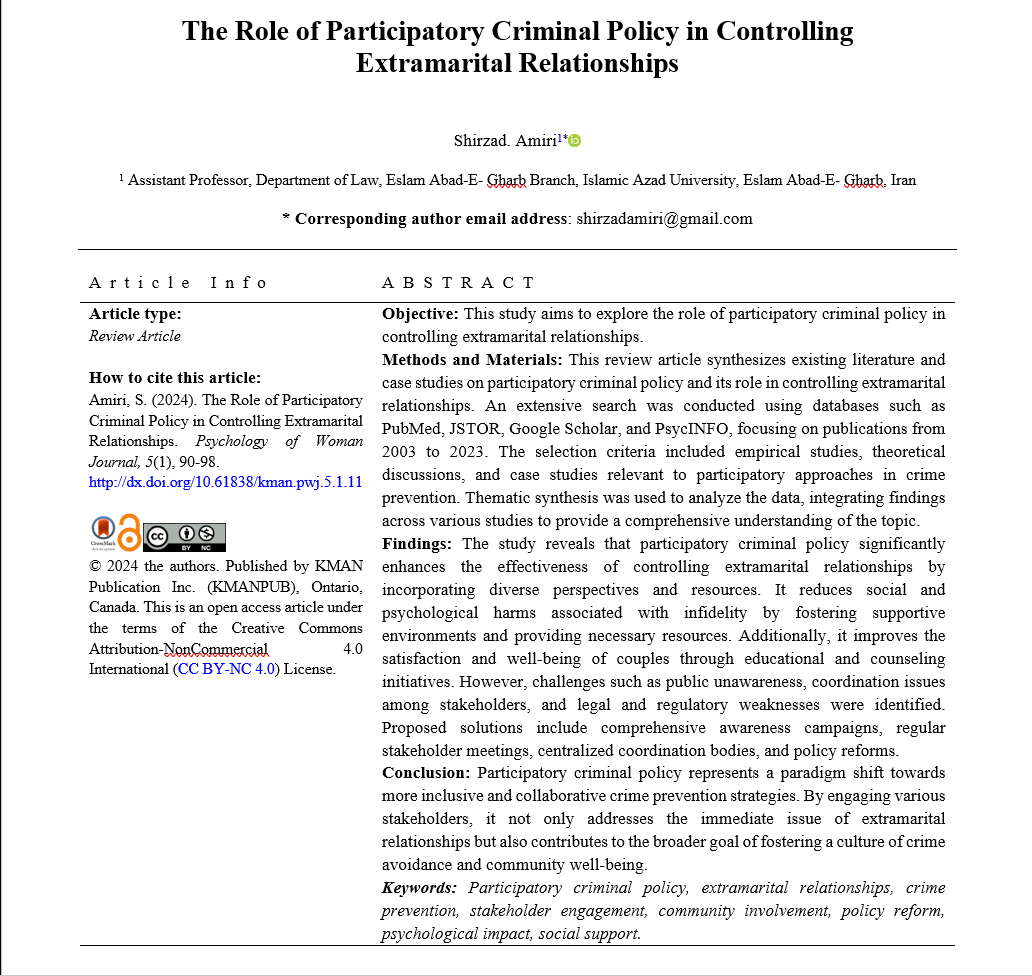The Role of Participatory Criminal Policy in Controlling Extramarital Relationships
Keywords:
Participatory criminal policy, extramarital relationships, crime prevention, stakeholder engagement, community involvement, policy reform, psychological impact, social supportAbstract
Objective: This study aims to explore the role of participatory criminal policy in controlling extramarital relationships.
Methods and Materials: This review article synthesizes existing literature and case studies on participatory criminal policy and its role in controlling extramarital relationships. An extensive search was conducted using databases such as PubMed, JSTOR, Google Scholar, and PsycINFO, focusing on publications from 2003 to 2023. The selection criteria included empirical studies, theoretical discussions, and case studies relevant to participatory approaches in crime prevention. Thematic synthesis was used to analyze the data, integrating findings across various studies to provide a comprehensive understanding of the topic.
Findings: The study reveals that participatory criminal policy significantly enhances the effectiveness of controlling extramarital relationships by incorporating diverse perspectives and resources. It reduces social and psychological harms associated with infidelity by fostering supportive environments and providing necessary resources. Additionally, it improves the satisfaction and well-being of couples through educational and counseling initiatives. However, challenges such as public unawareness, coordination issues among stakeholders, and legal and regulatory weaknesses were identified. Proposed solutions include comprehensive awareness campaigns, regular stakeholder meetings, centralized coordination bodies, and policy reforms.
Conclusion: Participatory criminal policy represents a paradigm shift towards more inclusive and collaborative crime prevention strategies. By engaging various stakeholders, it not only addresses the immediate issue of extramarital relationships but also contributes to the broader goal of fostering a culture of crime avoidance and community well-being.
Downloads

Downloads
Additional Files
Published
Issue
Section
License
Copyright (c) 2024 Shirzad Amiri (Author)

This work is licensed under a Creative Commons Attribution-NonCommercial 4.0 International License.









